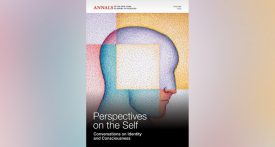Search results for tag "Ethics" - 10 answer(s)
256
Vote
In a book about self-esteem, the French psychiatrist Christophe André cites a number of social psychology studies according to which, in any given field, most of us feel just a little bit superior to the average person. We feel a bit more skilled, a bit more intelligent, we think that we have better taste, etc. “Based on these studies taken as a whole, he writes, 67 to 96% of people overestimate themselves in comparison to their peers. And that phenomenon is fully subconscious…”
If this is true when it comes to professional skills or taste, it is also true, and perhaps even more so, when it comes to ethics. Indeed, while we may sometimes nurture an inferiority complex with regards to our looks, general knowledge or intelligence, we rarely have similar doubts with regards to our moral values.
Read more
241
Vote
Read this anecdote submitted by one of e-ostadelahi’s readers, answer the two poll questions and share your comments!
Let us note at the outset that the point is not to reach an answer that would be “right” or “wrong” in the absolute sense. Reality is far too complex to be summarised in that way. While the anecdote reported here is real, the exercise is virtual. This poll is only meant to trigger reflexion and discussion.
Read more
236
Vote
Family life is filled with delights and annoyances that are felt particularly deeply within the couple itself. The hypothetical case study of “Jack and Kelly” offers an illustration that many of you have commented on. What if living together provided a sort of ethical laboratory for each of the partners? This is the idea proposed in the following text. In order to develop this hypothesis, the author of the article briefly recalls the conditions for a successful practice of ethical principles, as well as the operational modes of the imperious self according to Ostad Elahi. Then you will be invited to give further thought to the matter by taking part in a quick poll based on your own personal experience.
Read more
304
Vote
 This post is a follow-up to a previous post entitled “Ethics in a delicate situation: what do you think?”, which presented a hypothetical case study together with a poll, to which you can still participate if you haven’t done so yet (you might want to do so before reading further). Let us begin with a few remarks about the poll results: On both the French and the English versions of the site, choice e (There are no fundamental differences between helping others and devoting sufficient time to one’s spouse: Jack could have spent that evening exclusively with his wife and still be practicing ethics) has been by far the most popular, followed by choice b for the French version (The well-being of one’s spouse should always take precedence. It should be preferred to the well-being of others and even to one’s own well-being) and choice a for the English version (Efforts of generosity always meet obstacles that must be overcome to allow progress: Jack should have expected Kelly’s opposition and prepared himself better for this test in order to prevent any conflict).
Read more
269
Vote
Read this anecdote, answer the two poll questions and share your comments for 2 weeks! On March 9, an article will be posted, presenting several notions relevant to this discussion along with some guidelines for a good practice.
Let us note at the outset that the point is not to reach an answer that would be “right” or “wrong” in the absolute sense. Reality is far too complex to be summarised in that way. This is the toy model of a “clinical case study”: a virtual exercise in the form a poll aimed exclusively at promoting reflection and exchanges.
Read more
321
Vote
If one quality had to be singled out as being primarily required to live an ethical life, it would without question be courage. This courage Aristotle considered to be “the first of human qualities because it is the quality which guarantees the others.”
Indeed, so many good intentions get crushed by the fear to expose oneself or to break the bonds that tie us to others! So many ambitious programs are carefully reflected upon and put forward only to wane and erode away in the face of weariness! Because courage is essential every step of the way: to make the inaugural move that marks the beginning, to dominate the fear of exposing oneself, to spontaneously assert one’s freedom while remaining loyal to the initial impetus, and finally to survive the long solitary struggle against despondency.
Read more
297
Vote
The parable of the Good Samaritan in the Gospel of Luke is brought up in the course of a discussion between Jesus and a man of law with regard to the question of what one ought to do “to inherit eternal life”. Referring to the answer given by the law the man quotes a verse […]
Read more
548
Vote
No one likes to think of themselves as dishonest. In fact, most of us don’t think they are. Yet who can assert that they have been fully righteous and honest in every situation they have encountered over the past month or year? How can this dichotomy be explained? What is it that pushes us to adopt dishonest behaviours and that shuts down our moral conscience when we do so?
In this insightful and thought provoking talk given at the RSA, Dan Ariely, best-selling author and professor of psychology and behavioural economics at Duke University, draws from experiments conducted among various groups of people in different parts of the world, as well as on personal experiences, to shed some light on these questions.
Read more
844
Vote
Why does self-knowledge matter? How and why is it connected to the practice of ethics? Elie During, Associate Professor in the Philosophy Department of the University of Paris – Ouest Nanterre, addresses these questions in an article published in a special issue of the Annals of the New York Academy of Sciences entitled “Perspectives on the Self”.
In the following excerpt, the author examines Ostad Elahi’s concept of the “imperious self”, emphasizing the importance of self-modeling in the process of self-transformation.
Read more
757
Vote
It is not enough to learn to speak well. If we want to benefit from the words of those who intend to convey knowledge to us, we also need to learn to listen well. This, briefly, is Plutarch’s main thesis in “On Listening to Lectures”. It is quite remote from the current discourse on listening, which defines it almost exclusively as the condition of an authentic relationship to others, as this quiet action that could open us up to the subjectivity of others so that we may grasp their needs, desires and frustrations. This short essay examines listening as a “necessary condition to learning”. In other words, how shall we listen to those who know (or pretend to know) in a way that will allow us to take in what we need and thus progress in the knowledge—so dear to Plato’s followers—of truth and good?
Read more
« Prev - Next »
|

 News
News Podcast
Podcast













Recent Comments